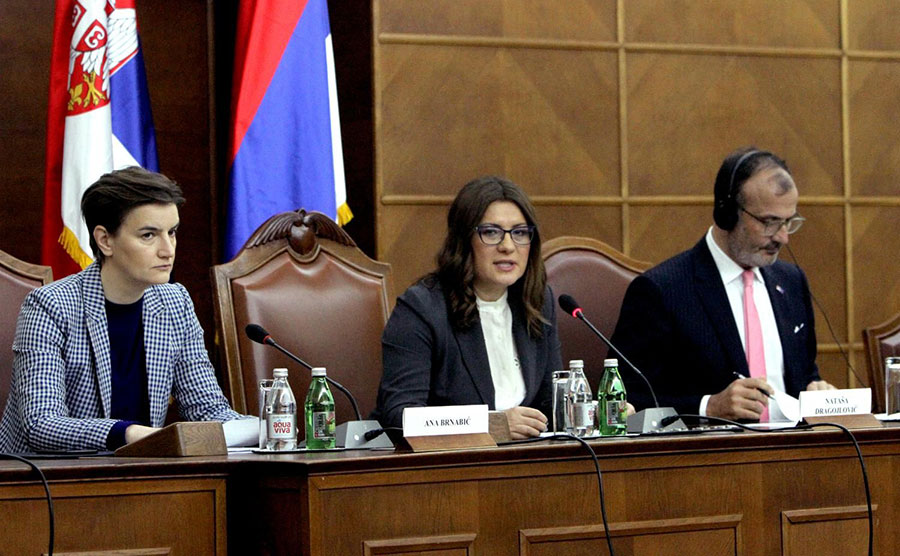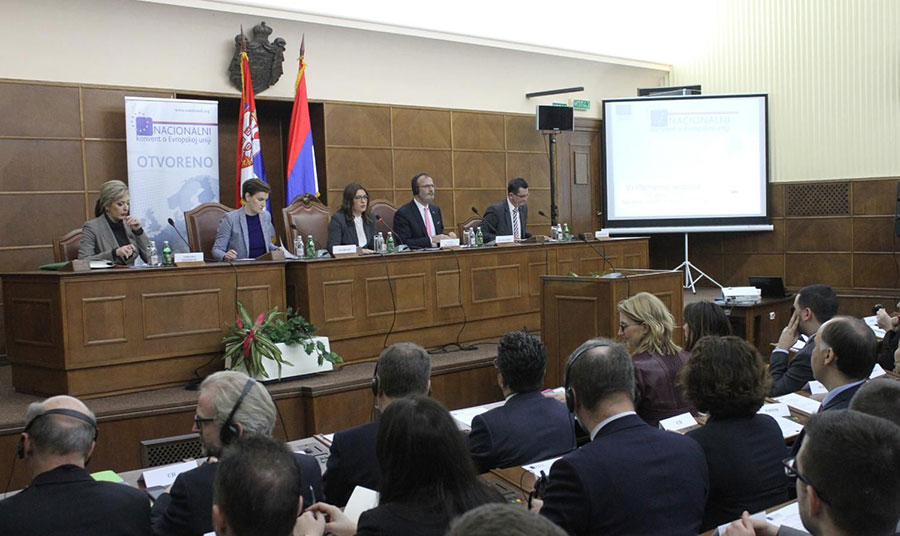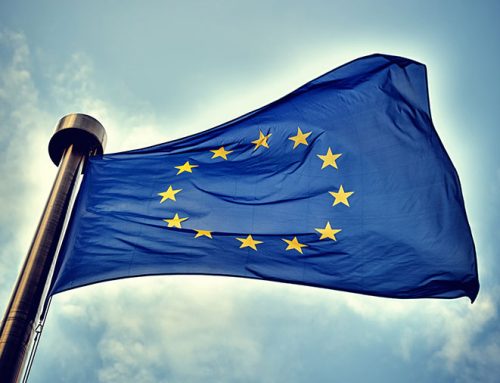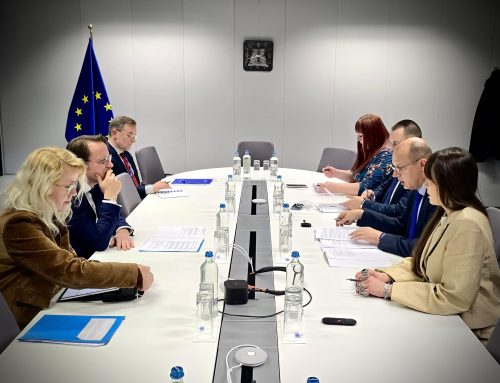Serbian Prime Minister Ana Brnabic said that the common goal of the Government and civil society organisations gathered at the National Convention, is Serbia in the EU, as a country of the rule of law, social justice, economic freedoms and safety of its citizens.
“We want a country that doesn’t only share European values on paper, but also a European standard of living,” said Brnabic during the sixth plenary session of the National Convention on the EU.
The prime minister said that 2019 will be challenging for the EU, especially because of Brexit and the European elections.
“There will certainly be less interest for the enlargement process, but Serbia and the Government will insist that reform proceeds as usual and that the laws be enforced efficiently. Serbia remains deeply and truly committed to the European integration process and we will remain a reliable and dependable partner to Brussels,” said Brnabic.
“Without the rule of law, all structural reforms in the economy will be for nothing; the rule of law, independence of the judiciary, fight against organised crime and corruption can be seen as a pillar of economic reform,” she stated.
Head of the EU Delegation to Serbia Sem Fabrizi said that the EU remains engaged with the region, despite the European elections taking place this year which will not affect their priorities, including the enlargement process.
“The Union will continue with its share of the job and I want that Serbia remains engaged in the process, stays on the path of reforms; I wish Serbia a strong economic growth,” said Fabrizi.

Fonet
He commended the work done by the National Convention on the EU, adding that it is not just about supporting the government in the process of European integration, but also about a thorough analysis and recommendations for the 35 negotiating chapters.
Fabrizi said that in 2018 numerous European officials like Antonio Tajani, Federica Mogherini, Johannes Hahn, etc. had an opportunity to address the Convention in different formats.
“The Prime Minister will probably confirm that Serbia is firmly on a European path, that it made certain progress in the reform process. Now it may seem like a difficult and painful process, but it is actually a long term investment for future generations. All the efforts we make will be rewarded by a more prosperous and secure society in the future,” said Fabrizi.
He reminded that Serbia has opened 16 negotiating chapters thus far and temporarily closed two, and that the focus remains on the negotiations, reforms in important areas of economy and rule of law, the freedom of media and the fight against organised crime and corruption.
This is an opportunity for Serbia to establish both democratic society and institutions, said Fabrizi pointing out that Serbian economy is already well integrated in the EU market which accounts for 63 percent of Serbia’s total foreign trade and almost 70 percent of investments in the country.
Fabrizi reminded that enlargement is back on the EU agenda, adding that he believes it will continue in 2019 as well.
Minister of European Integration Jadranka Joksimovic presented the results of the latest public opinion poll from December that shows that 54.6 percent of citizens consider that Serbia should join the EU.
“The same poll,” she stated, “showed that 64 percent of respondents believe that issues of Belgrade and Pristina should be resolved regardless of the EU.”
Joksimovic noted that the role of civil society representatives who communicate directly with citizens is of utmost importance.
As the coordinator for IPA funds, she announced that this year an IPA agreement sill be signed to the tune of €179.1 million, while nearly €40 million will be allocated for innovations and support for small and medium-sized enterprises.
With a realistic and optimistic approach we can show that we do not give up when faced with obstacles and this can be a good year for European integrations,” Joksimovic pointed out.
Coordinator of the National Convention on the EU Natasa Dragojlovic stressed that the opinions of the convention on key subjects are in keeping with European principles and values.
We need this kind of dialogue with the government more than ever because there is a deep polarization, strong rhetoric, a degree of violence we must face, and this kind of dialogue, communication and cooperation is necessary, Dragojlovic said..
During her presentation, Minister of European integration Jadranka Joksimovic asked what kind of violence did Dragojlovic refer to, to which Dragojlovic replied: “Verbal violence”.




